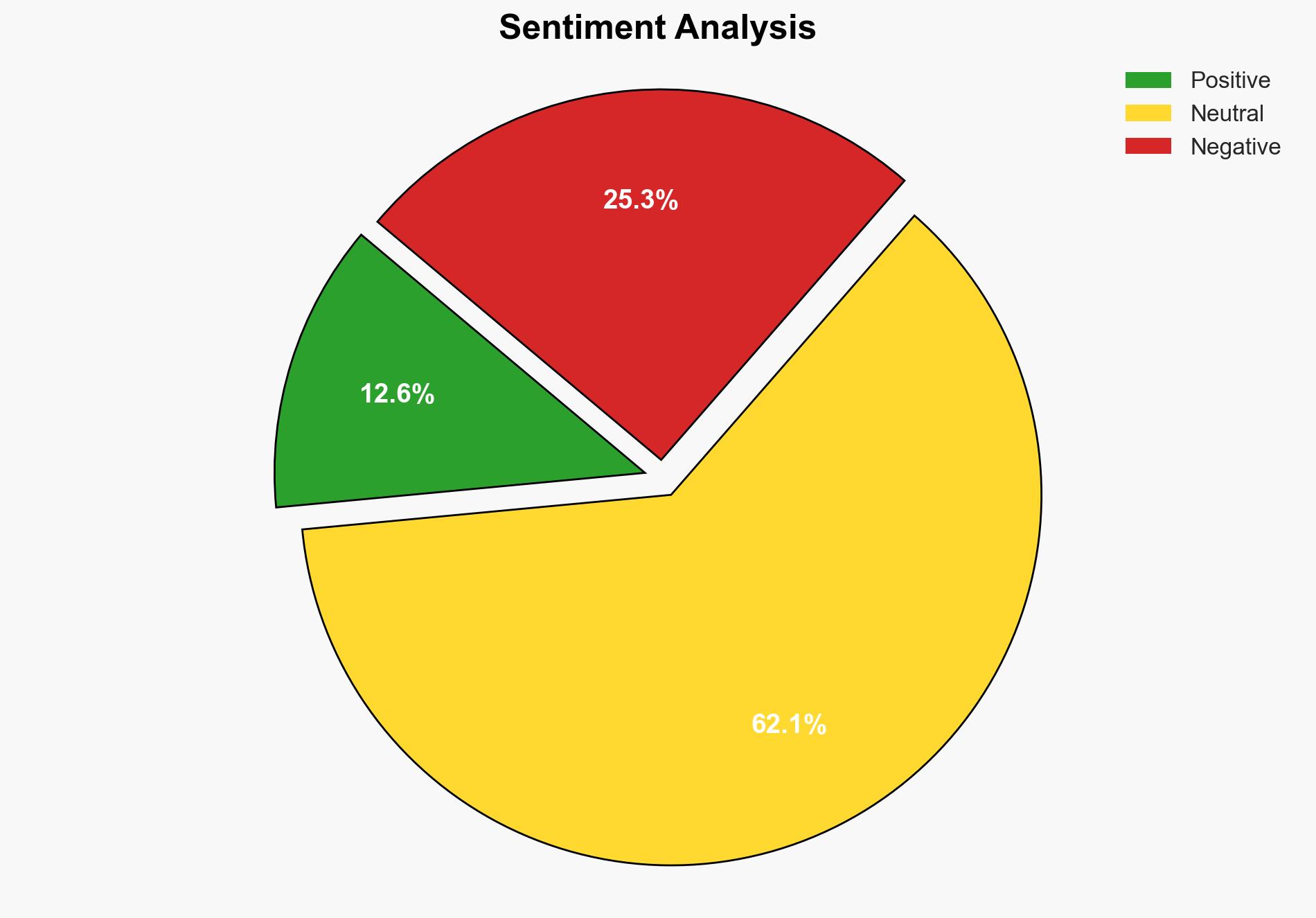Whats happened in Sudans civil war after new Khartoum battles – Al Jazeera English
Published on: 2025-03-27
Intelligence Report: What’s happened in Sudan’s civil war after new Khartoum battles – Al Jazeera English
1. BLUF (Bottom Line Up Front)
The Sudanese army has achieved a significant victory in Khartoum, recapturing the airport and the presidential palace from the Rapid Support Forces (RSF). This development marks a potential turning point in the ongoing civil war. The control of these strategic locations could shift the momentum in favor of the Sudanese Armed Forces (SAF) and alter the dynamics of future peace negotiations. However, the conflict remains intense, with continued fighting in other regions and severe humanitarian consequences.
2. Detailed Analysis
The following structured analytic techniques have been applied for this analysis:
General Analysis
The recent battles in Khartoum have resulted in the SAF regaining control over key strategic points, including the airport and the presidential palace. This victory is both a tactical and psychological advantage for the SAF, potentially altering the course of the conflict. The RSF’s initial control of these areas had provided them with significant leverage, but the SAF’s counteroffensive has shifted the balance. The conflict, however, is far from over, with ongoing clashes in regions such as Darfur and Kordofan. The humanitarian situation continues to deteriorate, with millions displaced and severe food shortages reported.
3. Implications and Strategic Risks
The recapture of Khartoum’s strategic locations by the SAF could lead to increased leverage in peace negotiations. However, the continued fighting poses significant risks to regional stability and national security. The humanitarian crisis is exacerbating, with potential spillover effects into neighboring countries. The prolonged conflict risks entrenching divisions and undermining efforts for a political settlement. The international community’s perception of the conflict may shift, influencing foreign aid and diplomatic interventions.
4. Recommendations and Outlook
Recommendations:
- Encourage diplomatic efforts to initiate peace talks between the conflicting parties, leveraging recent developments.
- Increase humanitarian aid and support to affected regions to alleviate the crisis and prevent further displacement.
- Monitor regional dynamics closely to anticipate potential spillover effects and adjust foreign policy accordingly.
Outlook:
Best-case scenario: Successful peace negotiations lead to a ceasefire and gradual stabilization of the region.
Worst-case scenario: Intensified fighting results in further humanitarian crises and regional destabilization.
Most likely outcome: Continued sporadic clashes with intermittent progress in peace talks, maintaining a fragile status quo.
5. Key Individuals and Entities
The report mentions significant individuals such as Abdel Fattah al Burhan and Mohamed Hamdan Dagalo. The entities involved include the Sudanese Armed Forces (SAF) and the Rapid Support Forces (RSF).





